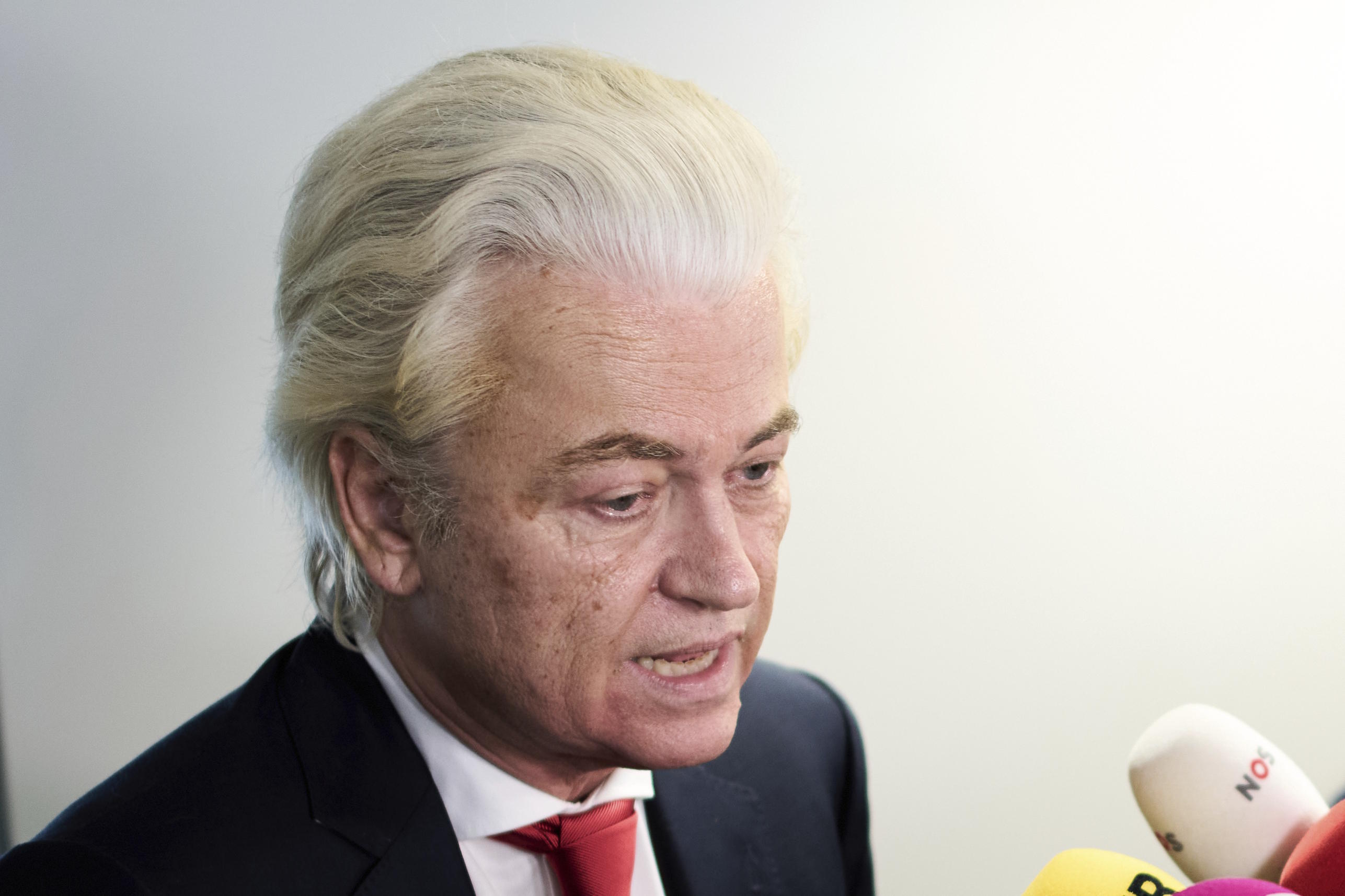The leader of the far-right in the Netherlands, Geert Wilders, announced on Tuesday that the Party for Freedom (PVV) "leaves the coalition" of the Government it led, after winning the elections in 2023. Wilders was not personally part of the Executive as this was one of the demands of his coalition partners. The reason for the breakup is the differences between the partners to further restrict asylum and immigration, according to Wilders. "Our asylum plans are not being signed. The government agreement is not being adapted. The PVV is leaving the coalition," he wrote on Tuesday morning.
Wilders announced that "without modification of the main government agreement, the PVV is leaving the coalition." In the past week, the Islamophobic leader had demanded that the Government adopt a 10-point plan to restrict the arrival of asylum seekers in the Netherlands, as reported by Efe. Among them, he proposed completely closing the borders to asylum seekers - something that is prevented by the European Union - the return of all Syrian migrants within six months, the suspension of family reunifications, or the militarization of the Dutch borders, so that the Army would monitor and prevent migrants from crossing.
Wilders made this ten-point plan public on May 26, when he already threatened to break the Government if it did not carry out "the most restrictive immigration policy in history," as he had promised.
Following Wilders' threats, the leaders of the four parties forming the coalition held a meeting on Monday afternoon to ask for explanations. The meeting lasted just under an hour. The three minority partners of the PVV stated that they would not oppose plans to restrict asylum, but left the responsibility for implementing them more quickly in the hands of the Minister of Asylum and Migration, the far-right Marjolein Faber, from the PVV.
However, Wilders blamed his partners for not being willing to support measures such as border closure, "right now." On Tuesday morning, Wilders announced his departure from the Government, which will likely lead to new elections in a few months.
The Prime Minister, the independent Dick Schoof, has not yet commented on the crisis. An extraordinary Council of Ministers meeting is scheduled for 13:30 on Tuesday to officially announce the departure of the five ministers and four State Secretaries from the PVV. Almost everyone assumes that there will be elections, but the leader of the New Social Contract, Nicolien van Vroonhoven, one of the Government partners, has stated that "a minority cabinet is also an option."
The leaders of the other three parties still in the Dutch Government have described Wilders as "irresponsible" and denied any disagreements on asylum policies. As Nicolien van Vroonhoven stated, as reported by Efe, during the Monday meeting "we discussed extensive asylum measures" and "there are still many things that can be done in the Government agreement." However, she accused Wilders of "leaving and throwing everything away."
The PVV swept the elections in the Netherlands in November 2023. Their electoral campaign focused on promises to severely restrict asylum and immigration.
After seven months of negotiations, in July 2024, Wilders reached an agreement with the three liberal and conservative parties in the Hague Parliament to form a government. However, he stepped aside and did not assume the position of Prime Minister, given everyone else's opposition due to his tough and controversial profile. Finally, the four signatory formations of the agreement - the PVV, VVD, NSC, and BBB - chose a career official as Prime Minister, Dick Schoof, for a Government with the PVV as the main partner and up to five far-right ministers.
